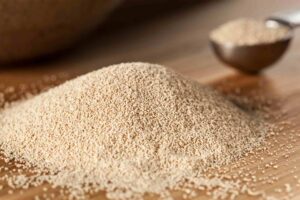A chronic degenerative disease with progressive evolution, in dogsosteoarthritis results in great suffering and, over time, gradually contributes to a reduction in the animal’s motor autonomy.
Underlying the problem-which mainly affects the hip, elbow, and knee joints-may be genetic characteristics, but also factors such as nutritional imbalances, chronic inflammation, aging , and obesity, which contribute to oxidative stress.
While NSAIDs and disease-modifying antirheumatic drugs(DMARDs) are the main treatment options of choice, their long-term use is limited by several undesirable effects.
The search for more natural substances with anti-inflammatory action has brought to light the possible role offish oil-rich in omega-3 fatty acids-which appears to be able to interrupt the inflammatory cascade and counteract oxidative stress. In humans, omega-3 supplementation in cases of osteoarthritis represents an established line of studies, which in dogs has only recently been inaugurated.
Contributing to this field is a study conducted at the University of Helsinki and published in the journal Lipids in Health and Disease.
The antioxidant effects of the two supplements
The Finnish team evaluated, in a prospective randomized, double-blind controlled study, a range of hematochemical parameters in a group of dogs with osteoarthritis treated daily with fish oil or corn oil supplements.
The work involved 77 dogs older than one year, weighing >18 kg, with pronounced pain and diagnosis confirmed on radiography. Similarly fed petfood that contained neither omega-3 nor other ingredients with known benefits against osteoarthritis, the animals were subjected to the assigned supplementation for 16 weeks.
At the end of the trial, 112 days later, dogs treated with fish oil showed a significant reduction in malondialdehyde concentrations (MDA)-known marker of oxidative stress-. And an increase in free carnitine from the antioxidant effect; parameters such as MDA and non-transferrin-bound iron-both markers of oxidative stress-also appeared reduced in the controls, and glutathione concentrations were increased in both groups, although not significantly. However, in the former group, the proportion of monocytes and basophils was reduced, while among the controls, platelet counts were significantly reduced and blood glucose and cholesterol levels were slightly increased.
The real difference in pro-inflammatory activity
The results, on the whole, thus point to the following: both fish oil and corn oil are able to strengthen the body’s antioxidant capabilities, reducing concentrations of typical markers of oxidative stress such as MDA and iron, and increasing the concentrations of substances with antioxidant action such as free carnitine and glutathione.
This, in essence, represents a confirmation of how important the lipid composition of the diet is in the face of osteoarthritis. The real difference, which underscores the greater efficacy of fish oil, is the significant reduction in the activity of both monocytes and basophils, which are characterized by their pro-inflammatory action. As the authors point out, this is a result that was achieved for the first time in dogs with osteoarthritis.
Reference
Barrouin-Melo SM, Anturaniemi J, Sankari S, et al. Evaluating oxidative stress, serological- and haematological status of dogs suffering from osteoarthritis after supplementing their diet with fish or corn oil. Lipids Health Dis. 2016;15(1):139. Published 2016 Aug 26. doi:10.1186/s12944-016-0304-6







